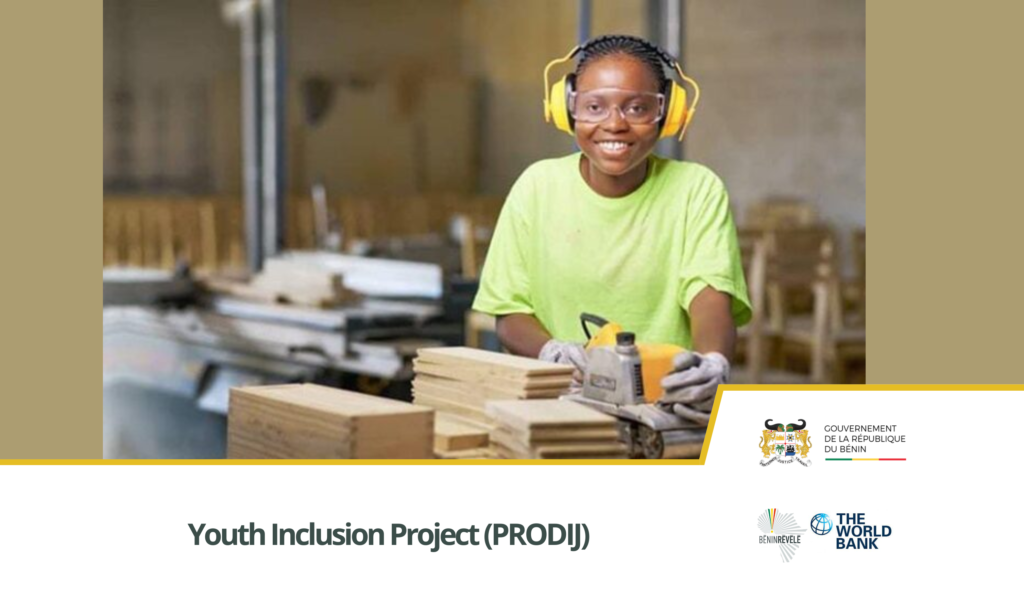Estimated at 9.98 million during the 2013 census, the Beninese population, which is growing at a rapid rate of nearly 3% per year, reached 11.80 million inhabitants in 2019. The population is young, with approximately 42.45% of individuals under the age of 15. This proportion rises to 63% for those under 25. As a result, the labor market is under extreme pressure, as approximately 200,000 young people reach working age each year (INSAE, EMICoV 2015).
While unemployment is not widespread in Benin, affecting only 0.7% of the labor force (INSAE, EMICoV 2015), underemployment, on the other hand, affects 72.9% of active Beninese. Underemployed workers are disproportionately young people, women, rural residents, self-employed individuals, those with low levels of education, and those working primarily in agriculture, livestock farming, fishing, and forestry. Specifically, 92% of employed young people aged 15 to 24 are in a situation of underemployment.
In this context, the Government of Benin has decided to implement the Youth Inclusion Project (PRODIJ) with support from the World Bank. The project’s development objective is (i) to increase the economic inclusion of young people aged 15 to 30 who are underemployed or inactive and have a middle school level education and (ii) to strengthen employment services and technical and vocational training systems in Benin. This initiative aligns with the specific objectives of the National Development Plan (PND) 2018-2025, which include (i) establishing an equitable, inclusive, and high-quality education system for sustainable development, (ii) promoting better income opportunities and decent jobs for the population, and (iii) enhancing the quality of interventions targeting young people.
Thus, PRODIJ has been designed to support interventions aimed at increasing the economic inclusion of vulnerable youth through a targeted approach that addresses risk factors for violence. The project sets specific objectives to benefit young people living in areas at risk of violent extremism by improving access to technical training services in trades identified as having high economic inclusion potential, increasing financial capacity, and expanding access to financial services. In the context of this project, economic inclusion refers to the entry, retention, and progression of young people in employment.


